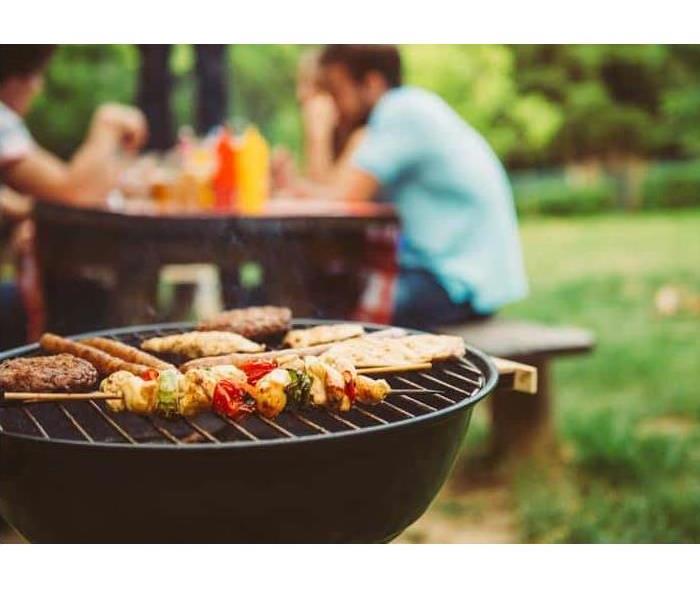Fire Up the Barbecue: Gas Grill Safety
6/5/2020 (Permalink)
 It is estimated that an average of 8,900 home fires are the result of gas grills each year, according to the National Fire Protection Association
It is estimated that an average of 8,900 home fires are the result of gas grills each year, according to the National Fire Protection Association
The month of June is famous for backyard barbecues and cookouts. The grill is a staple for
these events and often, they are gas grills, which are usually powered by propane tanks or
cylinders. While grilling should be fun and enjoyable, it is important to recognize that gas grills are a prominent fire hazard. It is estimated that an average of 8,900 home fires are the result of gas grills each year, according to the National Fire Protection Association. By understanding
how to safely go about each step in the grilling process, you can minimize the risk of a fire
igniting while keeping your summer cookouts enjoyable and safe.
Using a Propane Cylinder Safely
It is important to check your propane cylinder for damage, such as rust or dents, prior to use. If
you find that the propane cylinder is damaged, refrain from using that particular cylinder.
Additionally, make sure that the propane cylinder is not overfilled before firing up the grill.
Maintaining a distance of at least 10 ft between the propane cylinder and any combustible items
is crucial at all times. It is also extremely unsafe for children to be within close proximity to the
propane cylinder while it is in use. When not in use, propane cylinders should never be stored
inside. Instead, they should be kept in an outdoor location with sufficient ventilation in an upright
position. However, they should not be kept beside or underneath the gas grill.
Gas Grill Safety
Before any kind of cookout, be sure to check your grill for gas leaks. In order to do this, spray a
soapy water solution on the grill fitting and turn on the gas. Bubbles forming on that line
indicates a leak. Another important step is to check the hose that runs from the propane cylinder to the grill for any holes, which may leak gas. Also, be sure to remove any blockages that you find in the grill, which can range from bugs to old food grease, before you use the grill. Make
certain that the grill is located on a level surface in a ventilated outdoor space and don’t leave
the grill unattended while grilling. At any point while grilling you begin to smell gas, evacuate the
area and call the fire department from a safe distance. In the event of an emergency, it may be
beneficial to have a fire extinguisher on hand.
Once you’re finished grilling and the food is smelling wonderful, don’t forget to completely close the valve of the propane cylinder and turn off the grill’s burner controls. Before placing a cover over the grill, make sure that it has thoroughly cooled down.
In the Event of a Fire…
Adhering to safe grilling practices can reduce the chances of the ignition of an unwanted fire,
but regardless of how careful you are, accidents cannot be completely voided. If your home has experienced fire damage due to a gas grill mishap, be sure to call SERVPRO. From fire damage to smoke and soot damage, our team of skilled fire damage specialists will speedily remediate the damage so that you can continue to enjoy your sizzling summer barbecues and cookouts
this June.





 24/7 Emergency Service
24/7 Emergency Service